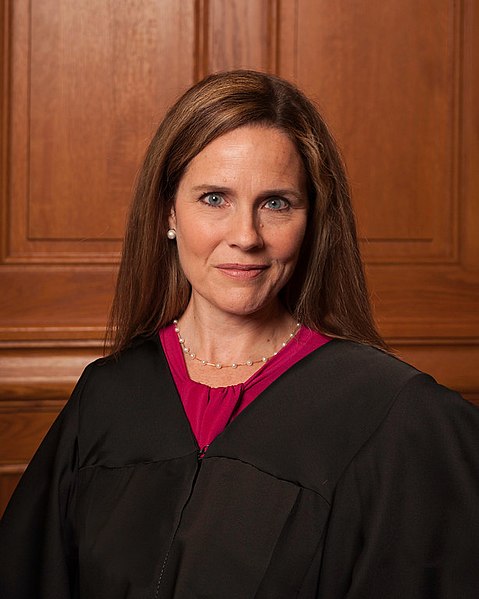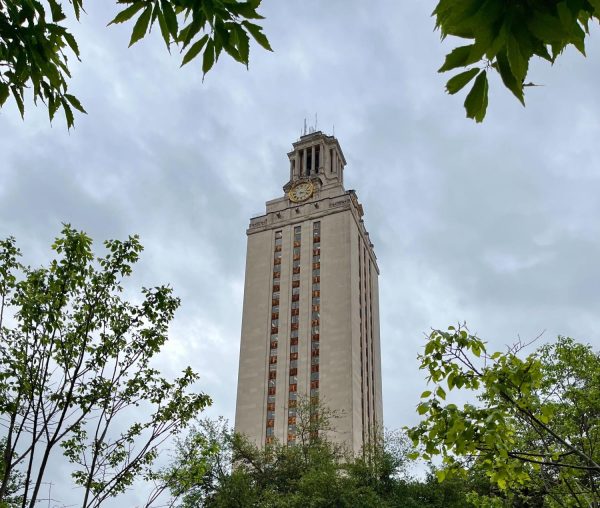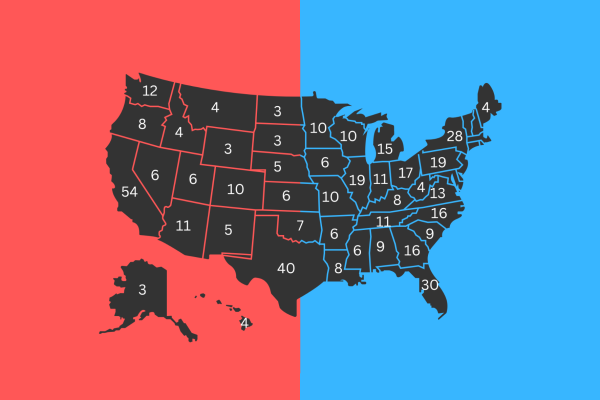Amy Coney Barrett Tapped For SCOTUS Seat

Rachel Malehorn
Amy Coney Barrett poses for her law school graduation picture. Photo courtesy of Rachel Malehorn.
After the passing of Ruth Bader Ginsburg, President Donald Trump announced on Saturday that he selected Judge Amy Coney Barrett for the Supreme Court seat. This is the first time a nomination after July with an upcoming election in the same year has taken place.
She is a woman of unparalleled achievement, towering intellect, sterling credentials, and unyielding loyalty to the Constitution. — Donald Trump
“Today it is my honor to nominate one of our nation’s most brilliant and gifted legal minds to the Supreme Court,” Mr. Trump said during a press conference. “She is a woman of unparalleled achievement, towering intellect, sterling credentials, and unyielding loyalty to the Constitution.”
Born and raised in New Orleans, the eldest of seven children, Ms. Barrett studied English Literature before shifting her major to law at Rhodes College. After graduating first in her class from Notre Dame Law School, Ms. Barrett clerked for Justice Scalia. She later became a judge for three years before being appointed by Mr. Trump to the United States Court of Appeals for the Seventh Circuit in 2017.
“President Trump could not have made a better decision,” Senate Majority Leader Mitch McConnell said in a statement. “Judge Amy Coney Barrett is an exceptionally impressive jurist and an exceedingly well-qualified nominee to the Supreme Court of the United States.”
Ms. Barrett is reported to be a member of People of Praise, a Catholic group that emerged from the global Catholic charismatic renewal movement of the 1960s. The group opposes legal abortion and gay marriage and asserts male dominance over women.
There are serious and deep concerns about Judge Amy Coney Barrett’s affiliation with People of Praise and her past comments about the conflict between faith and law.
— Andrew Seidel
“There are serious and deep concerns about Judge Amy Coney Barrett’s affiliation with People of Praise and her past comments about the conflict between faith and law,” Andrew Seidel, constitutional attorney with the Freedom From Religion Foundation, said in a press conference. “Not only is her connection to this community and her previous writings fair to ask about, but senators have a duty to the constitution to ask those questions.”
Liberal groups have expressed their concern over Ms. Barrett’s nomination as she is the complete opposite of Ms. Ginsburg. On one hand, Ms. Ginsburg was a women’s rights advocate, who supported the pro-choice movement, and was a part of the liberal wing in the Supreme Court. On the other hand, Ms. Barret is a conservative judge who supports the pro-life movement. With Ms. Barrett in court, textualists would have a majority, with six out of the nine total seats.
“Amy Coney Barrett meets Donald Trump’s two main litmus tests: She has made clear she would invalidate the A.C.A. and take health care away from millions of people and undermine a woman’s reproductive freedom,” President of Alliance for Justice Nan Aron, said during a press release.
Mr. Trump has expressed his desire to confirm his nominee before election day to ensure that he has a fifth justice on his side if a court case concerning the presidential election reaches the high court. Republicans are looking to hold the hearing before the Senate Judiciary Committee on Friday, Oct. 16 with a floor vote following in late October.
If selected, Ms. Barrett would become the 115th justice in the nation’s history, the fifth woman to serve in the Supreme Court, the sixth Catholic justice, and the youngest member of the current court. Ms. Barret is currently Mr. Trump’s third appointee to the Supreme Court, with more appointees than any other first-term president since Richard M. Nixon.

Class of 2023
Hey, I'm Amy! I am currently the Sports Editor for the Horizon! Outside of the press room, my hobbies include playing soccer and running...










